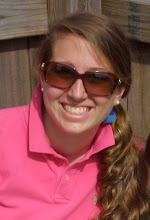It has been less than 15 years since I was in elementary school, and I remember many spring and summer days playing in the creek or the woods by my neighborhood, or walking to the pool a few neighborhoods over, with my only instructions being to be home by dinner. But now I frequently talk to parents who are shocked and concerned that we don't allow kids to bring their cell phones to camp.
It seems like people are starting to realize that our world of excessive technology and obsessive amounts of time spent indoors may prove to be detrimental to future generations. Richard Louv's book "Last Child in the Woods" (www.richardlouv.com) looks at what it might mean that this generation of America's kids are growing up indoors.
In this world of being always plugged in, institutions like summer camp are more important than ever. Summer camp gives kids the chance to play outside, enjoy nature, and be creative in ways that most kids just don't get to do these days. Splashing in the lake, surviving summer nights without air conditioning, and playing in the woods are activities that were once standard for American kids, but seem to be going by the wayside. Summer camp gives today's generation of kids at least a piece of that oh-so-important piece of childhood: a carefree summer existence that is slowly disappearing with the overbooked calendars so common among today's youth.


